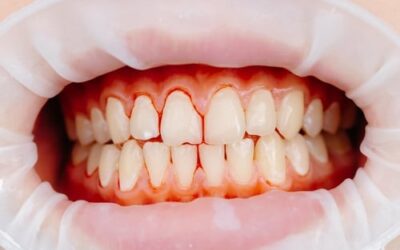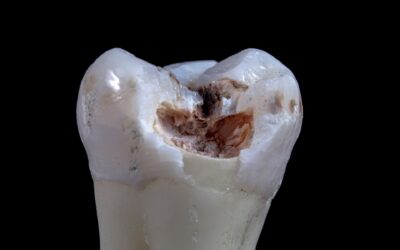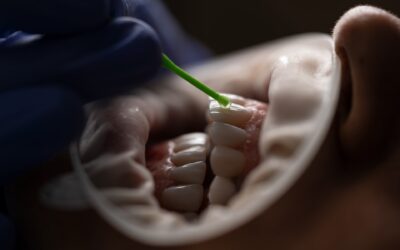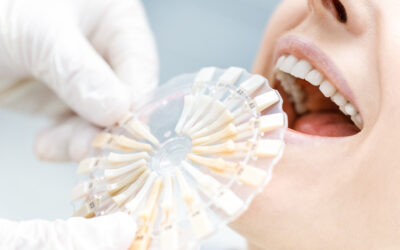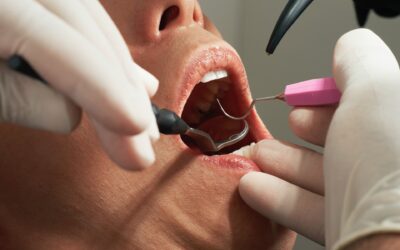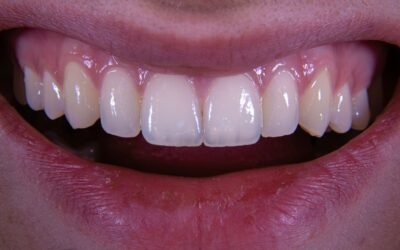Dental Implants
A great fixed solution for missing teeth
Dental Implants In Walsall & Cannock
Tooth implants are a long-term and very discreet solution for replacing missing or damaged teeth. It is an artificial titanium tooth root replacement placed into the jawbone. Often used in dentistry to hold a replacement tooth, bridge or denture.
We know that having missing teeth can impact the way you eat, speak, and even change the shape of your face. All of which can reduce your confidence. We offer this service as a long-term, solution that will feel like natural teeth.
Implant-retained replacement teeth are generally more comfortable than dentures as there is no slipping or movement. They are also a great fixed alternative to bridgework for replacing missing teeth. This in turn eliminates the need to reshape or work on healthy teeth.
They can also help to maintain the shape and structure of the jaw bone which will change after teeth have been extracted.

What Are Dental Implants?
Tooth implants are artificial tooth roots that are placed into your jawbone. They are typically made of titanium, a biocompatible material that integrates well with bone tissue. Once the dental implant is placed, the bone tissue fuses with the implant in a process called osseointegration. This creates a strong and stable foundation for a replacement tooth or bridge to be attached.
They are considered a safe and effective solution for missing teeth. They offer a permanent and natural-looking solution that can help restore your smile and improve your dental health.
Benefits Of Dental Implants
They offer several benefits for people who have missing teeth. Some of the most significant advantages of tooth implants include:
- Improved appearance: They can help restore your smile and improve the appearance of your teeth.
- Enhanced dental function: They can help improve your ability to chew and eat, which can help maintain your overall dental health.
- Improved speech: They can help improve your speech by providing a stable foundation for your replacement teeth.
- Improved dental health: They can help prevent further tooth loss and improve your overall dental health by reducing the risk of gum disease and other dental problems.
- Long-lasting results: They can last for many years with proper care and maintenance.
Caring For Your Dental Implants
To ensure your dental implants last for many years, it is important to practice good oral hygiene. You should brush twice a day and floss daily to remove plaque and food particles that can build up around the implants. You should also avoid chewing on hard or sticky foods that can damage the implants or cause them to come loose.
It is also important to visit your dentist regularly for check-ups and cleanings. Your dentist can examine your implants and surrounding teeth to ensure they are in good condition and recommend any necessary repairs or maintenance.
Replace Missing Teeth Permanently
Millions suffer tooth loss, this is mostly due to tooth decay, or injury. Previously, the only treatment options available for people with missing teeth were bridges and dentures. However, tooth implants provide a more permanent and durable solution particularly if you are missing more than one tooth. Furthermore, they look and feel much better than bridges and dentures.
Call us today to arrange an appointment with one of our very experienced highly skilled practitioners.
WHAT OUR LOVELY CLIENTS SAY…
Latest News & Updates
Stay informed with the latest news, tips and updates from Cheslyn Hay Dental Practice including expert advice, treatment insights and everything you need to keep your smile healthy.
Teeth whitening can dramatically improve your smile and boost your confidence, but what you eat afterward...
Receding gums are a common oral health problem that affects many people as they age. When gum tissue pulls...
Have you noticed a hole or dark spot in your tooth? Whether it is painless or not, this is often a sign of...
Regular visits with your dental hygienist are essential for maintaining excellent oral health. Even with a...
A toothache that flares up the moment your head hits the pillow can make sleep impossible. Night-time...
Sensitivity is a common and short-lived side effect of professional teeth whitening. It often appears in the...
All dental practitioners will agree that missing your routine check-up appointment is detrimental to your...
We are in a new era of authenticity when it comes to cosmetic procedures and enhancing your natural smile is...
White spots on teeth can be just as concerning as dark spots, especially when they appear prominently on...
Book An Appointment For Private Dental Care in Cannock
"*" indicates required fields




Dental Implants FAQ
What Are Dental Implants?
Dental implants are artificial tooth roots that are placed into the jawbone to support a replacement tooth or bridge. They are typically made of titanium, a biocompatible material that integrates well with bone tissue.
What Is The Process Of Getting Dental Implants?
The process of getting dental implants typically involves several appointments with your dentist. During the first appointment, your dentist will evaluate your dental health and determine if dental implants are the right solution for you. They will also take X-rays and impressions of your teeth to determine the placement of the implants. The next step involves placing the dental implant into your jawbone. This is typically done under local anaesthesia or sedation to ensure your comfort during the procedure. Once the implant is placed, a temporary crown or bridge is attached to the implant to allow the healing process to begin. After the healing process is complete, your dentist will attach the replacement tooth or bridge to the implant using a dental abutment.
What Are The Benefits Of Dental Implants?
Dental implants offer several benefits for people who have missing teeth, including improved appearance, enhanced dental function, improved speech, improved dental health, and long-lasting results.
How Long Do Dental Implants Last?
Dental implants can last for many years with proper care and maintenance. They are a permanent solution for missing teeth and offer a natural-looking and long-lasting result.
Are Dental Implants Safe?
Dental implants are considered a safe and effective solution for missing teeth. They have been used for many years and have a high success rate.
Are Dental Implants Painful?
The process of getting dental implants typically involves some discomfort, but it is typically manageable with local anaesthesia or sedation. After the procedure, you may experience some swelling or discomfort, but this can be managed with over-the-counter pain medication.
Can I Eat Afterwards?
We recommend staying away from hard, crunchy, spicy, acidic, or sticky foods in the days following your treatment.
Can Anyone Get Dental Implants?
Not everyone is a candidate for dental implants. Your dentist will evaluate your dental health and determine if dental implants are the right solution for you based on factors such as your oral health, bone density, and overall health.
How Do I Care For My Dental Implants?
To ensure your dental implants last for many years, it is important to practice good oral hygiene. You should brush twice a day and floss daily to remove plaque and food particles that can build up around the implants. You should also avoid chewing on hard or sticky foods that can damage the implants or cause them to come loose. It is also important to visit your dentist regularly for check-ups and cleanings.
How To Contact Us
If you are interested in dental implants you can call 01922 414 372, and we will arrange a consultation.


